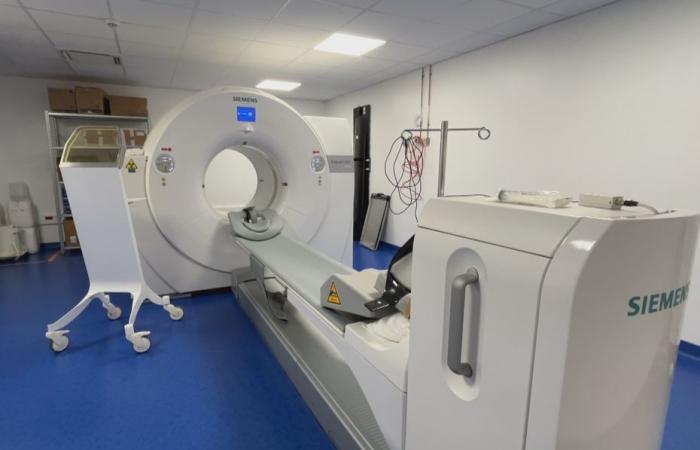Guadeloupe is facing a shortage of radiotracers, radioactive substances that can detect cancers. The cause is the breakdown of a reactor in France. At the same time, the Guadeloupe Molecular Imaging Center (CIMGUA) is closed from October 28 until November 18; time to install much-awaited equipment.
This is a shortage that has nothing to do with the total blackout in Guadeloupe, between October 25 and 27, 2024; it is national. Guadeloupe lacks radiotracers, due to the breakdown of a reactor in France, which occurred around ten days ago. This equipment makes it possible to produce these radioactive agents necessary for the detection and monitoring of cancers, by scintigraphy. However, these radiotracers are delivered to us from across the Atlantic.
The outage is temporary, but seriously disrupts the activity of the nuclear medicine department of the Guadeloupe Hospital Center (CHUG).
Patients who need to be diagnosed and those who are already being followed for cancer are paying the price for this shortage.
Technetium, which is the main radioactive agent used, the main radiotracer, is in clear shortage. This means that today we are supplied with technetium generators, which are calibrated at a third or 50% of normal. As a result, this directly impacts the number of patients, the number of examinations that can be carried out, which is divided by two, or even by three.
Dr Lyonel Bélia, head of the nuclear medicine department at the CHUG
Practitioners are forced to concentrate on immediate emergencies, being unable to do all the bone scans, nor all the heart or parathyroid scans.
This problem is recurring, according to the specialized service. Other deferred examinations will be carried out during sessions which will be specifically organized.
Bad news never comes alone, the Guadeloupe Molecular Imaging Center (CIMGUA) has been closed since Monday October 28 and until November 18, 2024.
But, ultimately, Doctor Lyonel Bélia considers that it is a blessing in disguise, since this closure is explained by the installation of equipment of great interest for the care of patients.
We will have a digital PET scan which will allow us to carry out, not 25 examinations per day as we currently do, but between 30 and 35 examinations. So, for patients, the care will be significantly improved, with an examination which will also be shorter, under the camera, and injected doses which will be significantly lower.
Dr Lyonel Bélia, head of the nuclear medicine department at the CHUG
During the three weeks of closure, patients will be sent to Martinique, or to mainland France.






